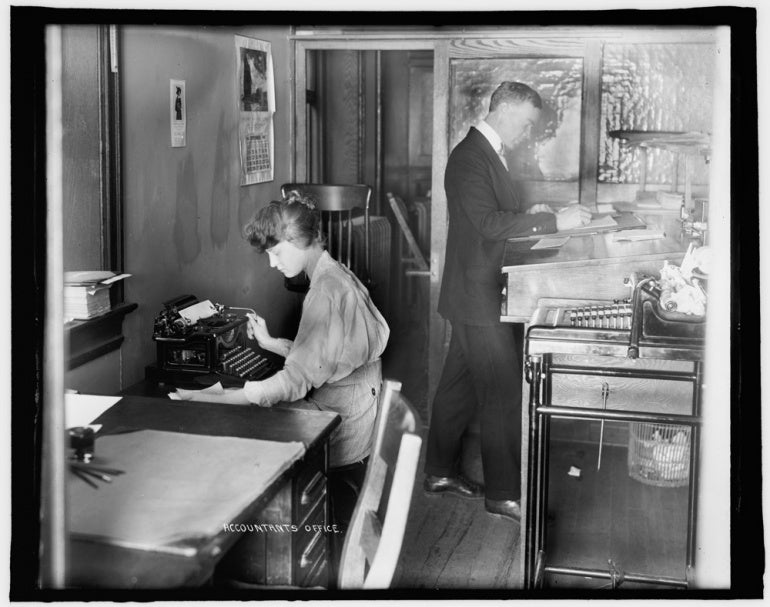Don't Be Lazy! How to Handle Tax Time
Welcome back for another edition of Richard Photo Lab’s “Don’t Be Lazy!” Your dose of tough love when it comes to your film photography career…
Spring is in the air, and you hear those three little words that make your heart skip a beat…
“It’s tax time!”
That’s right, your taxes are due every year on April 15th. And we know tax season can be tough, especially for small businesses. We’re right there with you because we’re a small business, too.
You’ve taken on a big financial responsibility by becoming a business owner. So, we thought it was time to chat about getting real and paying taxes as a professional photographer.
First thing’s first… Maybe you’re thinking, “I started this thing as a cash business, and I never paid taxes before. Why should I start now?”
Here’s the harsh truth: not paying your taxes is some lazy, rookie bull$#!%.

You need to take this seriously!
News flash: it’s ILLEGAL not to pay your taxes. And while some folks might be able to slip under the radar for a bit, it’s only a matter of time before the consequences come. Especially in volatile political climates. Sound familiar?
When “compliance” becomes a main goal for many institutions, enforcing rules is an attempt to maintain a sense of order.
The irony of it all? The only way out of the trouble you’re in when you don’t file your taxes is to pay. We’re talking potential penalty fees, interest, and damage to your credit score for starters.
And some consequences don’t just threaten your financial state, they can affect your professional reputation, too!
For example, a tax lien could be imposed. That’s where the IRS files a claim on your property.
But it’s more than that. It’s a public declaration of the claim that relates to your creditors. Meaning your dirty little tax secret could be outed to vendors or suppliers you work with, landlords, banks, even customers that make deposits or other prepayments to you.
Your property can be seized, too (which is also known as a tax levy).
Imagine you’re about to head out to a job, or you’re on one, and your car gets impounded. Not looking too pro now, are you?

Even with the most successful career path, if you don’t file your taxes, you are doomed to failure. Why? You’re digging a hole that will only get deeper.
What happens when that start-up goes from making $20,000 a year to $200,000? Do you think no one will notice? The government doesn’t take these things lightly.
We spoke with James Cagle, CPA, who has over 30 years of experience helping businesses in the photography industry.
He stresses the crucial nature of properly managing cash flow from the start, so you can maintain financial health. “The biggest mistake I have seen photographers make is when they do not seek out sound financial and tax advice from the beginning,” says Jim.
“There are many regulations and filing requirements that can trip photographers up. And which usually result in penalties being assessed. Photographers are also unprepared for paying their taxes, both income tax and self-employment tax.”
Being prepared from day one gives you the opportunity to work the system in your favor as much as possible. Tax write-offs, for example, can be a huge win for a business. Some can even come into effect before your startup even opens its doors.
Or what about the different entity types you can establish your business under? Your business can be categorized as a Sole Proprietor, an LLC, a C-Corp, an S-Corp, or an LLC Partnership.
Let’s say you made a total of $210,000 in sales in a year. Filing under one entity type can cost $8,000 more out of your final take-home per year than another! We won’t tell you which ones, because you really should be talking to an accountant…

In fact, we’re not going to try to walk you through ANY of the many complex facets of taxes as a small business owner.
Frankly, it would go against Richard’s long-and-strong-held belief that photographers should devote their time & energy to their core competencies and outsource the rest to an expert. Just like we wouldn’t tell you to print & construct your own canvas wrap or develop & scan your own film at home, we wouldn’t suggest that you navigate tax preparation on your own!
You spend your life taking beautiful film photos and digital images, and other people spend their lives making beautiful tax returns.
The number one excuse we hear from photographers for not seeking help from a professional accountant? "It's so expensive!" But when you consider the value of their insights and guidance (and the price you could pay without it), you'll find you are getting quite a deal...
The expertise of a pro accountant can shed light on tons of unknowns in the tax system.
As a photographer, you face unique challenges when it comes to your finances that not all other business owners do. The most notable one pointed out by Jim? “Sales tax, sales tax, sales tax! In most businesses, the application of sales tax is straightforward—not so with photographers. Internet sales, intrastate sales, prepaid fees, and purchases of tangible personal property via Internet retailers who do not collect state sales tax all are areas of concern unique to photographers.”
Ultimately, you don’t need that much help—and help is invaluable. Doing a monthly check-in on your financial state with a certified accountant and having him or her handle your taxes makes it super easy to maintain a healthy financial state.
Plus, if you do end up getting in some sort of tax snafu (legitimate or in error), you’ll have someone to represent you if you are working with an accountant.
When Jim first started as a CPA, one of his very first assignments on the job was to observe the happenings in tax court, where he noticed a substantial amount of photographers in trouble. That could be you!
When you’re ready to give Jim (yes, he works with photographers anywhere in the country) or another expert accountant a call, don’t forget to do your homework! It’s the easiest way to prepare for tax season.
“Going to your tax appointment with a shoe box full of receipts is not the optimum way to minimize your tax burden,” says Jim. “Contemporaneous record keeping with an accounting software such as QuickBooks is essential. Aside from record keeping for tax purposes, photographers are also entrepreneurs trying to run and manage a business—you cannot do this blindly!”

It’s just a fact that the longer a business is around, the more likely it is to fail. We’ve seen it happen so many times in our decades upon decades of experience working with professional photographers.
What if that failure is because of the choices you are making right now? What will you have at stake by then? A house, kids, higher education costs, a retirement fund, etc?
That’s a risky little game. So put in the effort to play by the rules. The peace of mind will be worth it.

